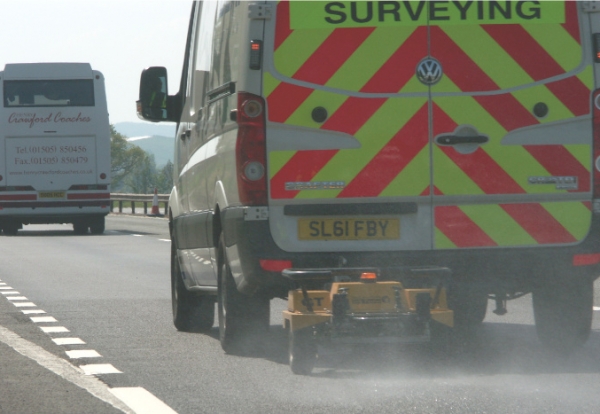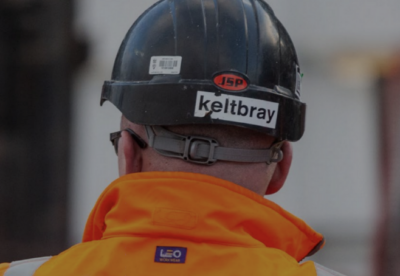Extensive ‘grip testing’ on a short stretch of the busy A90 dual carriageway between Perth and Dundee has confirmed the revolutionary new materials viability.
“This could transform our approach to road surfacing in the UK,” said Alan Mackenzie, chief executive of Breedon Aggregates Scotland, which produces the new material.
“Our industry has been trying for years to successfully incorporate recycled rubber into asphalt, without much success.
“Thanks to a new technology, which we are partnering with Danish firm Genan to promote in the UK, we can help change that.”
The stretch of road is one of the busiest in Scotland, carrying around 35,000 vehicles a day.
Over the next few months the material will be closely monitored against several key performance criteria, including skid resistance, and the early indications are very encouraging.
Previous attempts to use rubber in asphalt involved trying to melt the rubber completely before mixing it with stone and bitumen.
The new technology enables it to incorporate rubber particles directly into the binding agent at lower temperatures, with lower levels of emissions.
This delivers significant environmental benefits.
Since 2006, EU rules have banned the disposal of tyres to landfill, leaving large quantities of shredded rubber to find alternative uses in various forms of recycling.
According to the European Tyre and Rubber Manufacturers Association, nearly 480,000 tonnes of used tyres arose in the UK in 2009.
Life Cycle Assessment studies show that for every ton of scrap tyres used for rubber modification of bitumen and asphalt, 1.1 tons of CO2 emissions are saved compared with incineration of the tyres.
“We’re bringing to market an asphalt which is more economical and environmentally friendly than any comparable product currently available,” added Mr Mackenzie.
“We’ll be drawing on a readily-available recycled raw material, reducing the proportion of expensive stone and bitumen in the mix and cutting the amount of gases and fumes produced, so it’s an all-round win for us and for our customers.”
Transport Scotland said: “We are pleased that industry has identified this opportunity and developed an alternative surfacing material for use on the trunk road network.
“This adopts a sustainable approach in making the best use of resources available, by re-using an abundant waste material and thereby reducing the use of oil-based bitumen products.
“TS will continue to work collaboratively with the industry under the auspices of the TS Pavement Forum and we look forward to the continued success of this initial trial.”
Following the success of the trial in Scotland, Breedon Aggregates will now begin to market the new material, to be called Breedon Polymer R+, from its 18 asphalt plants throughout Scotland and England.




















































 (300 x 250 px) (2).png)

